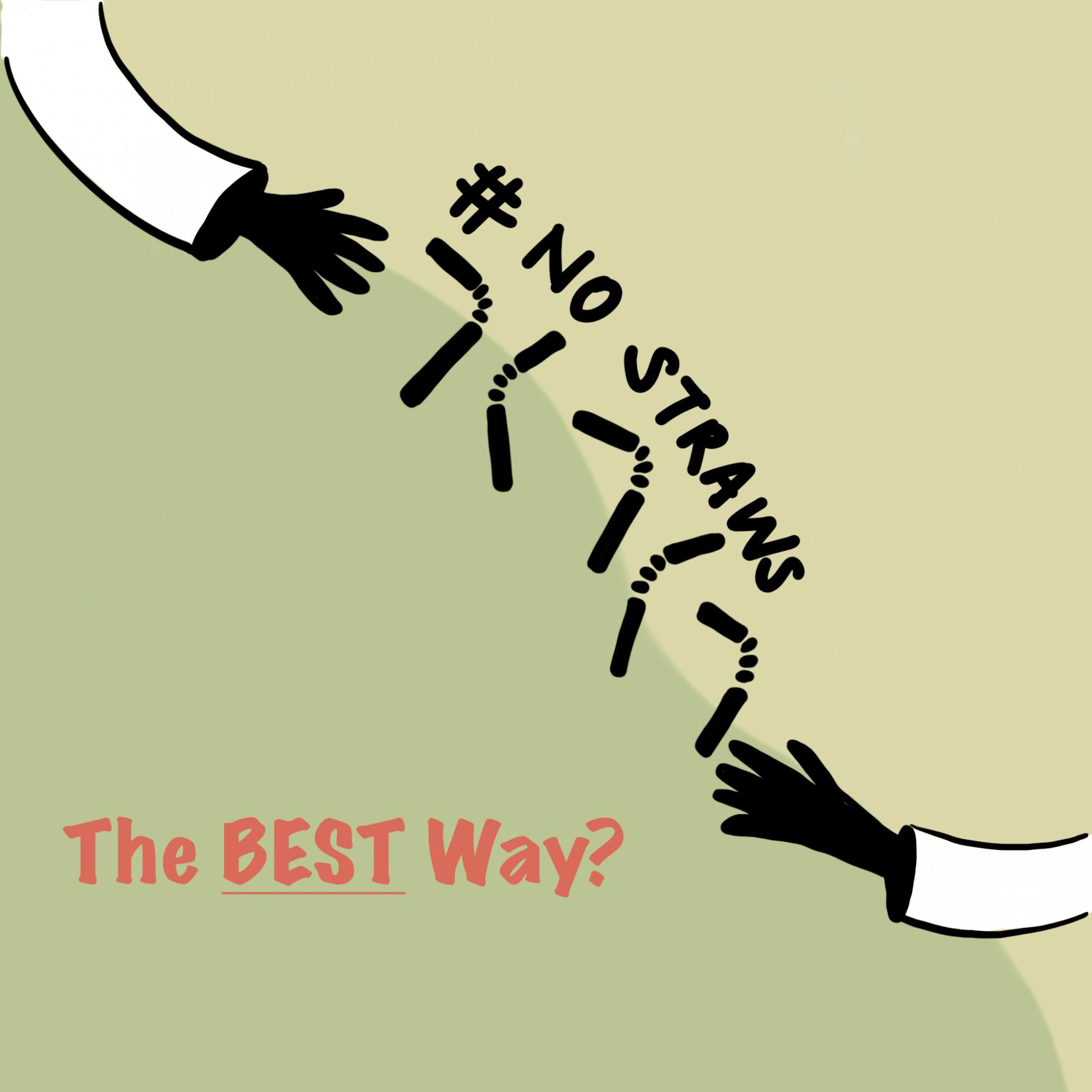Is eliminating plastic straws really the answer to climate change?
Unless you have been living under a rock, then you have probably noticed the introduction of reusable straws around campus. The supposed intent behind this new green initiative is to cut back on the use of single-use plastics, of which I am completely in favor. The abundance of single-use plastics in existence has exacerbated the effects of climate change by contributing to greenhouse gas emissions around the world. This initiative to stop using plastic straws is not just isolated to Brandeis University — this is a global movement in which the consumer is being challenged to consider how even the smallest actions, such as using a straw, have drastic consequences on the environment. However, though I am in support of holding ourselves accountable for climate change and its impact on our environment, I am not on board with the focus on blaming the consumer. Instead, I believe that we should shift our collective gaze on the giant conglomerates responsible for the mess we find ourselves in now and hold them accountable for the absolute destruction these companies have caused in our world.
71% of all global greenhouse emissions are created by only 100 companies. If this is the case, then why has the majority of the blame been placed on the consumer? I think that there are two primary reasons why the narrative has been skewed, the first being that it is simply the most profitable solution. These companies have been incredibly successful in making you, the consumer, feel bad for the mess they have created. Instead of spending any money to fix the problem, they have gotten you to purchase more products that supposedly “fix” climate change. Honestly, my hat is off to their marketing team for being able to sell such complete and utter garbage to the public. For example, let's take the company Chevron Corporation, an oil company that ranked 12th on that list I mentioned earlier. Chevron contributes to 1.31% of all greenhouse gas emissions in the world. It also made a net profit in just the fourth quarter of last year of 3.7 billion dollars. If they put 1% of that towards researching more eco-friendly alternatives to their product, that would be an astounding 37 million dollars. And that is only one company on a list of 100. There is no reason that we should be in the catastrophe that we are in today.
The second reason that I believe the consumer is being blamed for climate change is because it is something tangible that the average person has direct control over. We may not be able to force companies to contribute their earnings to fixing climate change or passing sensible laws that would save our planet. What is completely within our control is the ability to say “no” to a simple plastic straw. Instead of becoming totally disenfranchised with those in power and taking on a nihilistic outlook, people try to fix what they can in order to make themselves feel like they have some sort of control over their future. I don’t blame people for acting this way; it is a means of survival. We feel good about ourselves for not using a straw when we order our non-fat oatmeal macchiato and think that we have done our part after carrying our groceries in flimsy paper bags that will inevitably rip once you have left the store.
Now, where do we go from here? I find it highly unlikely that these 100 corporations will have a Scrooge-like epiphany and out of the goodness of their hearts fork over millions of dollars to climate change research. The government, at least in the United States, has to take these companies to court. This strategy has worked before: the Oklahoma attorney general took the pharmaceutical company, Johnson & Johnson, to court in a landmark case in which Johnson & Johnson was held partly responsible for the opioid epidemic sweeping the country and were forced to pay 572 million dollars, which will be put by the state towards addiction treatment programs. Why can’t the same be done for the sake of climate change?
I have for most of this article tried to shift the blame of climate change onto these large corporations. This does not completely absolve the consumer. Sure, we could continue to solely focus on eradicating plastic straws and making sure we correctly recycle (which, by the way, is a sham in itself, but that is a story for a different time). Plastic straws make up just 0.025% of plastic found in the ocean. Although the fight to remove plastic straws has its flaws, it does show just how powerful the consumer can be in demanding change. If we focused that energy on other, more productive climate-change reducing measures, we could make much more of an impact. For starters, boycott the use of plastic bags. Try to avoid stores that offer them if you can (though I realize this might not be feasible for everyone). Vote with your dollar. That is the power that the consumer has. If you vote with your dollar, you are placing more of the blame on these companies, while also owning up to the role we have in the current state of our planet. We have the power to enact change and hold these companies responsible. So what are we waiting for?



Please note All comments are eligible for publication in The Justice.